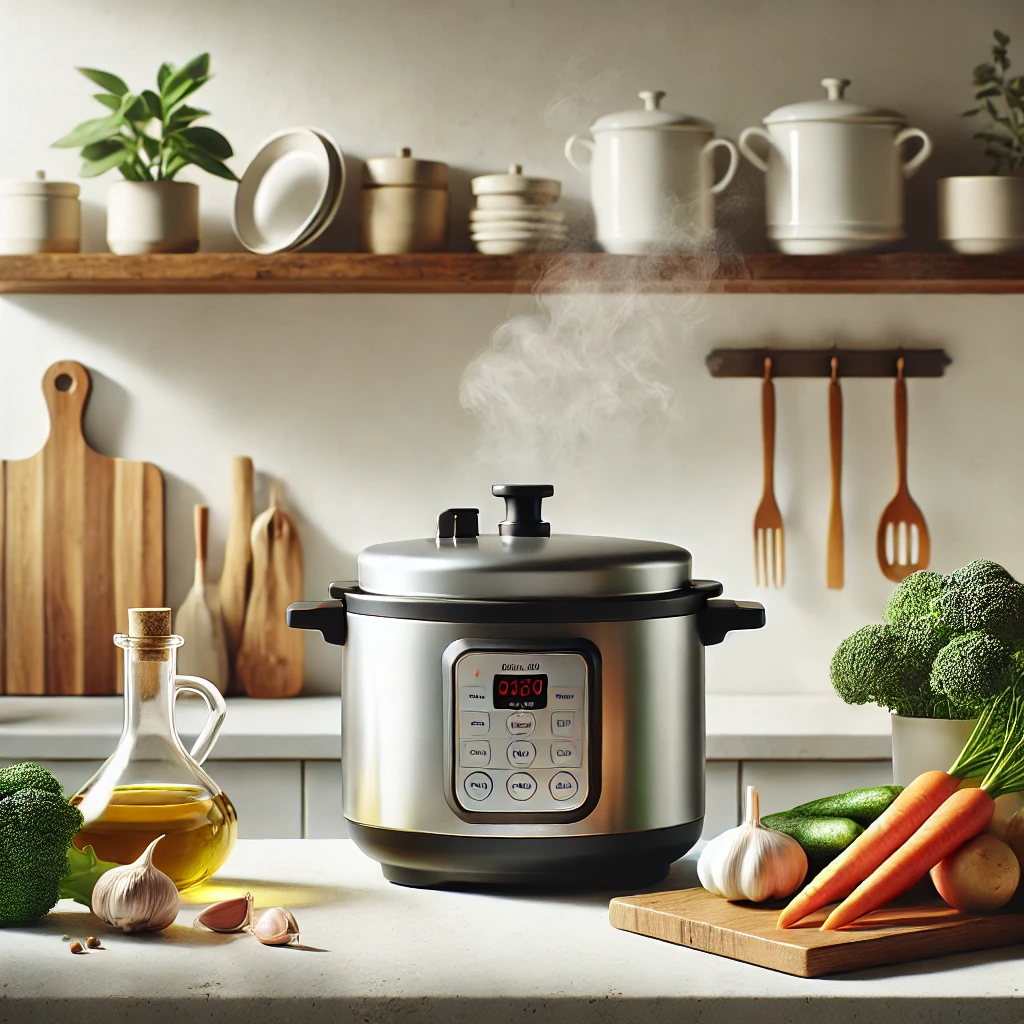Cooking chicken in a pressure cooker has become a popular method in modern kitchens. With its ability to deliver quick, flavorful, and tender meals, many are left wondering: is cooking chicken in a pressure cooker healthy? This article dives deep into the nutritional impact, health benefits, and best practices for pressure-cooking chicken. You’ll also find answers to common FAQs and practical tips for making the most out of this method.
What Is Pressure Cooking?
Pressure cooking is a method of cooking food in a sealed vessel that uses steam pressure to cook food faster than traditional methods. This technique not only saves time but also offers several health benefits.
- Retains more nutrients: Unlike boiling, where vitamins leach into the water, pressure cooking locks in nutrients.
- Enhances flavor: The sealed environment allows for the infusion of flavors in a shorter period.
- Energy-efficient: Pressure cookers use less energy compared to ovens or stovetops.
For a deeper understanding of how pressure cooking preserves nutrients, Cleveland Clinic provides a comprehensive overview of its effects on food quality.
Nutritional Impact of Pressure-Cooked Chicken
Cooking chicken under high pressure ensures optimal nutrient retention. Studies reveal that pressure-cooked chicken retains more protein and vitamins than frying or boiling. This is largely because of:
- Shorter cooking time: Minimizing cooking duration reduces nutrient degradation.
- Minimal water use: Vitamins like B and C remain intact when fewer liquids are used.
Pressure cooking is particularly effective for preparing lean proteins like chicken. For further insights into how this cooking method compares to others, check out Healthline’s guide.
Health Benefits of Pressure-Cooked Chicken
1. Low-Fat Cooking
Pressure cooking chicken requires less oil, making it a heart-healthy choice. You can skip the butter or heavy sauces that other methods often require.
2. Easier Digestion
The tenderizing effect of high pressure makes chicken more digestible. This can be especially beneficial for individuals with sensitive stomachs or dietary restrictions.
3. Fewer Harmful Compounds
Unlike grilling or frying, pressure cooking minimizes the production of potentially carcinogenic compounds like heterocyclic amines (HCAs) and polycyclic aromatic hydrocarbons (PAHs). These harmful compounds are typically formed during high-heat, dry cooking processes.
Potential Drawbacks to Consider
While there are many advantages, cooking chicken in a pressure cooker does have a few considerations:
- Risk of overcooking: Chicken can easily become dry or rubbery if cooked for too long.
- Safety concerns: Modern pressure cookers are designed with safety features, but improper use can lead to accidents.
- Formation of acrylamide: Although rare, cooking starchy sides like potatoes alongside chicken could lead to this harmful compound’s formation.
Best Practices for Cooking Chicken in a Pressure Cooker
- Choose the right cuts:
- Bone-in, skin-on chicken pieces are ideal for retaining moisture and enhancing flavor.
- Use proper seasoning:
- Pressure cookers intensify flavors, so season generously before cooking.
- Monitor cooking time:
- Stick to recommended times for different cuts (e.g., thighs vs. breasts).
For detailed recipes and seasoning tips, explore the Nutrients Recipes Blog.
Comparing Pressure Cooking to Other Methods
Pressure Cooking vs. Boiling
- Retains more vitamins and minerals due to less water exposure.
Pressure Cooking vs. Frying
- Eliminates the need for excessive oil, reducing calorie intake.
Pressure Cooking vs. Slow Cooking
- Delivers similar tenderness in a fraction of the time.
Frequently Asked Questions
1. Is pressure cooking chicken safe?
Yes, as long as the internal temperature reaches 165°F (74°C). Modern pressure cookers come equipped with safety features to prevent accidents.
2. Can you cook frozen chicken in a pressure cooker?
Absolutely! Just increase the cooking time slightly to ensure the chicken is thoroughly cooked.
3. Does pressure cooking destroy nutrients?
No, in fact, it helps retain nutrients better than methods like boiling or frying. For more on nutrient preservation, visit Cleveland Clinic.
Conclusion
Cooking chicken in a pressure cooker is undeniably a healthy, efficient, and flavorful option. This method retains nutrients, minimizes harmful compounds, and makes meal preparation quicker and easier. Incorporate pressure-cooked chicken into your weekly menu for a balanced, nutrient-packed diet.
For more healthy cooking ideas, explore Nutrients Recipes and transform your meals with expert tips and techniques.
Internal Links:
- Use “pressure cooking benefits” as a rich anchor text to direct users to additional resources on Nutrients Recipes.
- Link “healthy chicken recipes” to related blog posts on Nutrients Recipes for meal inspiration.
By following these tips and utilizing the resources provided, you can confidently answer: is cooking chicken in a pressure cooker healthy? The evidence speaks for itself—pressure cooking is a valuable addition to any healthy lifestyle.
If you’re interested in learning more about meal prepping, check out our https://nutrientsrecipes.com

